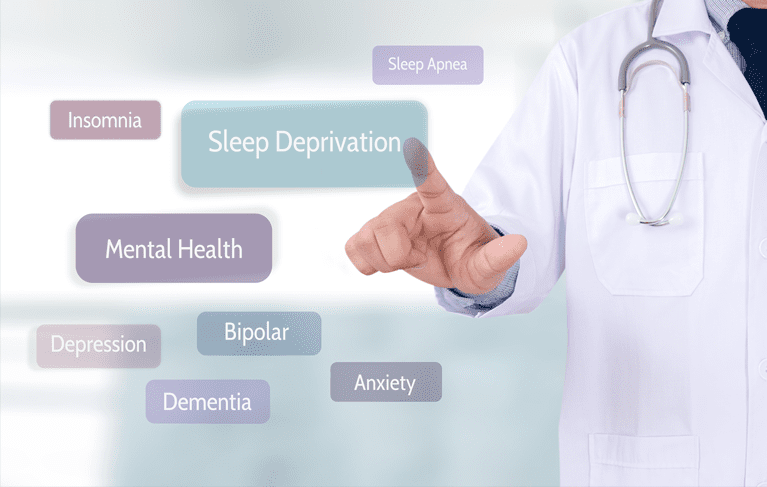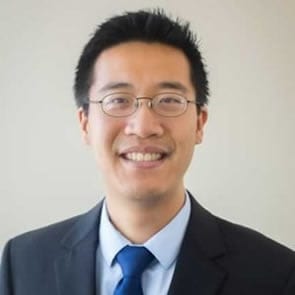
Kanye West to Donald Trump:
My Sleep Deprivation was Misdiagnosed as Bipolar Disorder
Sleep and mental health are rarely talked about on the same plane, but their relationship is much more intimate and sophisticated than we give them credit for. Chronic sleep disorders affect many adults who have been diagnosed with a mental illness and are receiving treatment from a psychiatric practice. The most common mental health issues associated with sleep problems and sleep disorders are anxiety, depression, and bipolar disorder.
Recently retired NFL running back Jim Brown, and hip-hop artist Kanye West met in the White House to speak with President Donald Trump to be covered by reporters before the three joined for lunch. In the midst of a conversation covering many different political topics, Kanye West announced that a neuropsychologist he had recently visited informed West that his previous diagnosis of bipolar disorder was a misdiagnosis.
In a video shared by CBS Evening News, West said after being diagnosed with bipolar disorder, “I was connected with a neuropsychologist that works with the athletes in the NBA and the NFL, and he looked at my brain. He said that I actually wasn’t bipolar, I had sleep deprivation” West went on to add the neuropsychologist explained that his sleep deprivation “could cause dementia 10 to 20 years from now where I wouldn’t even remember my son’s name”.
After his diagnosis of bipolar disorder, West has become outspoken about his own mental health and the mental health of others, hoping to spread awareness and get many people the help they need. However, West did not realize the connection between mental health and sleep, or the dangerous effects sleep deprivation has on our mental health until speaking with a neuropsychologist.
“Often unrecognized is the association between inadequate sleep and neuropsychiatric manifestations such as memory loss or mood disorders, as well as cardiac risks such as stroke and heart attack” Dr. Cheng, one of our board-certified sleep physicians at Vitalistics, responded when asked for his thoughts on the news of Kanye West’s misdiagnosis.
Dr. Cheng went on to add, “Adequate sleep is essential to ensure that we get enough REM and deep sleep, during which memory consolidation takes place. Inadequate sleep can be an issue as simple as insufficient sleep time, or an issue of not getting good “quality of sleep.” If you feel you may fit in the latter category despite an adequate sleep opportunity, it would be prudent to see a physician trained in sleep medicine, given the long-term implications.”
Sleep and mental health go hand in hand. Healthy and high-quality sleep leads to a healthy state of mind. However, as in West’s case, sleep deprivation has similar signs and symptoms of different mental health disorders such as depression, anxiety, and bipolar disorder. Sleep deprivation is also known to cause or worsen the symptoms of these mental health disorders. Unfortunately, the presence of these mental health disorders also causes sleep deprivation and other sleeping disorders such as insomnia and obstructive sleep apnea. Poor sleep and mental health issues can compound and feed off each other to worsen both one’s sleeping issues and the symptoms of mental health issues.
After viewing the video of Kanye West with President Trump, Vitalistics COO Jennifer Stephenson, RPSGT, said, “This is just another example where many sleep disorders can be misdiagnosed.” Stephenson went on to add, “We see this often in children who are diagnosed with Attention Deficit Hyperactivity Disorder only to find out after further evaluation they are suffering from Obstructive Sleep Apnea (OSA).”
Receiving treatment for both mental health disorders and sleeping problems are crucial to achieving healthy sleep. Understanding the interplay between mental health disorders and sleep problems can aid in proper diagnoses and improved treatments for both conditions.
Stephenson finished explaining, “Mental health professionals are encouraged to screen their patients for Obstructive Sleep Apnea and other potential sleep disorders when patients present with symptoms that are commonly seen in mental health diagnoses. Depression, mood changes, excessive daytime sleepiness, dementia are all signs and symptoms of OSA.”
Sleeping disorders affect millions of Americans. Kanye West is not the first celebrity to openly admit to suffering from sleep problems. Retired NBA player Shaquille O’ Neil, actress and comedian Rosie O’ Donnell, and former NFL player Reggie White have all been diagnosed with obstructive sleep apnea. Actor William Shatner, former “Who Wants to be a Millionaire” host Regis Philbon, and retired NFL quarterback Brett Favre are among other celebrities who have suffered from sleep apnea. The Los Angeles medical examiner even listed sleep apnea as a factor in “Star Wars” actress Carrie Fisher’s death.
If you are experiencing poor sleep and noticing worsening issues with your mental health, or even worsening symptoms with an already diagnosed mental health disorder, it’s time to get help! Lack of sleep is hazardous to your mental health, and you should learn what you are up against so you can properly treat your sleeping issues as soon as possible. Get insights and answers by taking our online Sleep Assessment, and schedule an appointment with your personal physician to discuss your sleep problems. With proper testing and diagnosis, your physician will be able to prescribe a treatment that will allow you and set up a home sleep test from Vitalistics, so you can get the quality sleep you need and get back to resting easy at night.
About Dr. Cheng
 Dr. Cheng is triple-boarded in Neurology, Sleep Medicine, and Clinical Neurophysiology. Dr. Cheng graduated magna cum laude from UCLA, then received his MD with Latin honors from the State University of New York. He then completed his Neurology Residency at NYU where he served as chief resident and received the Resident Teacher of the Year award. Dr. Cheng completed a fellowship in Clinical Neurophysiology at UCLA Medical Center, and then completed a second fellowship in Sleep Medicine at Stanford Hospital & Clinics.
Dr. Cheng is triple-boarded in Neurology, Sleep Medicine, and Clinical Neurophysiology. Dr. Cheng graduated magna cum laude from UCLA, then received his MD with Latin honors from the State University of New York. He then completed his Neurology Residency at NYU where he served as chief resident and received the Resident Teacher of the Year award. Dr. Cheng completed a fellowship in Clinical Neurophysiology at UCLA Medical Center, and then completed a second fellowship in Sleep Medicine at Stanford Hospital & Clinics.
